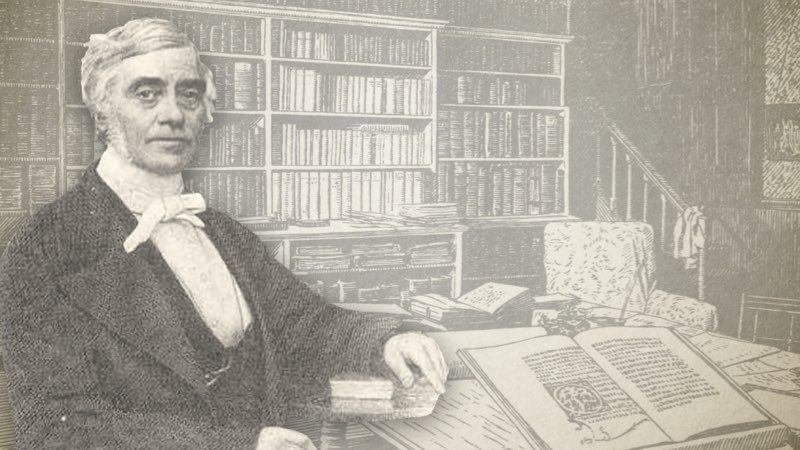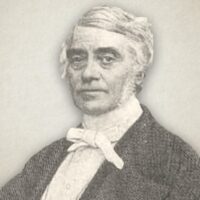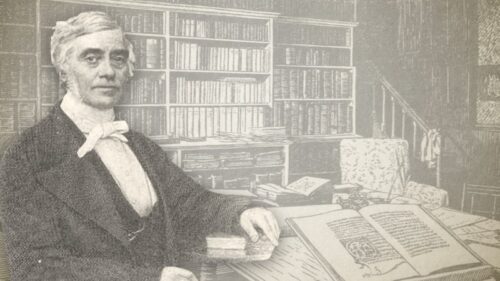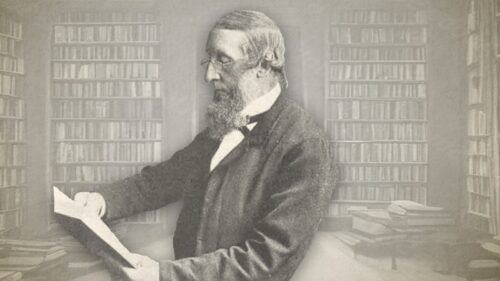
The Dangers Of Associations And Mission Boards
Gospel Standard 1841:
“Foreign Missions.” A tract bearing [this] title, and dated “Chatteris Committee, Oct. 6, 1840, “has been forwarded to us, by a correspondent, for an opinion of it in our pages. It is not indeed our usual practice to travel out of our road to pronounce a judgment on works not sent to us expressly for review, but we feel ourselves justified in this particular instance in departing from our accustomed rule. Our wide circulation amongst the living family, and, we trust we may add, our influence amongst them, have put us into a position which we did not occupy at the outset. If the Lord has set us upon a watch tower, if He has given us all any measure of spiritual discernment, or endowed us with any portion of divine faithfulness, we are called upon by this very position that we are placed in, trying and difficult as it is, to stand forth to oppose error, as well as to defend truth. The children of God are a scattered family, generally very poor and unlearned, and always much despised and hated, but never more so than when mixed up with churches that have a form of godliness, but deny the power thereof. Many inwardly possessed of the fear of God are weak in judgment and deficient in spiritual discernment, easily browbeaten and trodden under foot by presumptuous boasters; and being lean, and broken, and sick, and diseased, are thrust at with side and shoulder, and pushed with the horns of the fat and strong cattle, whom the Lord has promised to feed with judgment. (Ezek. 34:16-22) If to such staggering in the wilderness we can be “instead of eyes,” (Num. 10:3I) and if any measure be instrumental in delivering them from legal taskmasters, we shall cheerfully bear the scourge of the tongue that the lords over God’s heritage will surely smite us with. For the sake then of the living children, we drop the following remarks respecting the tract entitled “Foreign Missions,” which, we understand, has been very widely diffused through the Particular Baptist churches in the counties of Huntingdon, Cambridge, Bedford, &c.
But the very nature of an association such as this tract has sprung from, first demands our attention.
We would ask, then, what scriptural precept or precedent there is for a number of ministers to unite in forming an association of this nature? The Lord, indeed, sent out the seventy, two and two (Luke 10:1); Paul and Barnabas are separated by the Holy Ghost, to labour together in the work to which He had called them (Acts 13:2); and the Apostle speaks of his “fellow-labourers,” and “fellow-helpers.” (1 ‘I’hess. 3:2; Phil. 4:3; 2 Cor. 8:23) But these co-labourers widely differed from a body of associated ministers furnished with a committee, a president, a chairman, &c. Such associations, therefore, having no precept nor precedent for their formation in the word of God, we are bound to reject them as unscriptural.
But there are positive evils in these associated bodies which arise from their very nature. Union is strength. The sticks that, singly, are easily broken, united into a bundle, receive and confer strength from the union.
This is the secret of all confederacies, political or religious. But what strength is thus gained? Spiritual strength that is made perfect in weakness? Ah no. The very strength grained from union precludes this; for if spiritual strength be made perfect in weakness, and can only be made known in weakness, then all strength gained by union is a departure from that weakness in which alone divine strength is made perfect. All such strength is, therefore, carnal strength, and, as such, involves a departure from Gospel principles.
But this strength thus gained must be employed against somewhat; for it cannot lie idle. This Joint-stock Company must work their capital. The power thus gained by the ministers is employed and worked against the people, and chiefly against God’s people. Such has been, from earliest times the effect of power grasped by ministers. It was the first step in the Primitive church to Popery; it is the grand means for holding together the body of the Wesleyans; and it is now the chief instrument in the counties of Suffolk, Essex, Cambridge, Huntingdon, &c., to stifle experimental truth, and bind heavy chains upon the gospel. Its effect is this. A creed is drawn up, or tacitly assented to by all the ministers of the association; they, naturally, preach for one another; and their pulpits are open only to the associated ministers, or to those who come with their countenance, or with their shibboleth. A strong party is formed in the churches by the admission of members saturated with similar views. The living family form a small, despised, browbeaten minority. The leading members of the churches work with the ministers, and all opposition is silenced and put down. Thus, under the noxious shade of these tall interlaced trees, all truth dwindles and dies. The living family are starved, honest men gagged, the faithful witnesses for truth excluded, and a dense crop of weeds grows up under the protecting shadow of the association. The ministers, having no divine acquaintance with the Gospel, gradually depart from the letter of truth, some minister of more talent or more craft, more plausibility or more tact than the rest, leading them forward, like the belwether, into error, until, emboldened by numbers, and mutually encouraged by companionship in belief, the association lands in barefaced Arminianism, like the Midland Association, or into Socinianism, like the old Presbyterians, the constitution of whose church, though in somewhat a different manner, was an associated one.
We would say, then, to all the people of God who have ears to hear, resist where you can, and where you cannot, flee out of Associations. Whatever be their professed object, and this, all in the case of “Foreign Missions,” may be put forward with no such apparent and possibly not real design, but, whatever be their proposed object, their termination will be to enslave and fetter you. Like the woodman in the fable, who asked permission of the trees to take a handle to his axe, with which, when granted, he cut the whole forest down; so will these associated ministers, who now ask you to unite in forming a society, cut down your liberties with the handle that you are asked to give them. It is but throwing the net further to catch a few more fish; it is but getting a few more sticks to make the united bundle stronger.
But is not the object of this meditated society so pure and excellent, as to warrant the employment of all the machinery it can set in motion? And if this object is not attainable by any other means, why should those who have it at heart hesitate to employ the instrumentality of an organised society? But its object will be best explained in the words of the tract:
“The design of this address will be at once understood when it is stated, it may be viewed as another and final effort to effect the formation of a Foreign Missionary Society, for the purpose of diffusing the light of salvation among the heathen.”
The main object of the address is to prove, that to the church is committed the duty of promulgating the Gospel. The following extract contains the pith of the address:—
“We therefore confidently submit our opinion, that the duty arising from the trust reposed in the church is twofold, namely, to defend the purity and to dispense the doctrine, of salvation to the whole world. It is the important business of the church to defend the gospel, and not only to defend but to diffuse it; and not only to diffuse it, but to diffuse it in a pure state.
“And for these objects she is to employ her resources; for these ends she is to originate and set in motion such measures, as in the nature of things, and in subordination to the will of God, the word of Christ, and the witness of the Holy Spirit shall tend to the furtherance and accomplishment of the Saviour’s commission. She is thus exalted in the midst of the earth; established on the top of the mountains. Her elevation is divine. She is the consecrated medium of divine agency; and bears the impressions of a divine stamp. She is a divine result; and is unto God for a name, and for a praise, and for a glory in the earth.’
“Her very duties are her honour, the immediate end of her being and life. Nor can she neglect them without deep dishonour to herself, and insult to her Lord. That very moment she fails in the execution of her trust, that very moment she commences a fatal descent. Her brilliancy declines; the glory of the Lord departs; and Ichabod maybe inscribed upon the posts of her doors.
“Serious and humbling as these facts are, we cannot but inquire, though it be with fear and trembling,—Have the societies, composing that part of the Christian church to which we belong, done their duty? Have they fulfilled their obligations? Have they—or to speak more directly home—have we faithfully and righteously discharged our trust? Have we used all our talents for the honour of him who gave them? Is it evident that we have acted in accordance with the benevolent spirit of christianity, the genius of the dispensation under which we live, and the design of that trust which the commission to preach the gospel has lodged in the bosom of the church?
“We venture to inquire yet further—if it be not too apparent that notwithstanding the keenness with which we have defended the doctrines of sovereign grace those very doctrines have been either implicitly or avowedly repudiated by many of our church? We have looked upon ourselves as being set for the defence of the gospel; and so we are; but this is only a profile view of the case, and leaves out just one half of the truth, and by consequence, just one half of our duty. For we are not only to guard the gospel, but to give it; not only to define it, but to diffuse it; not only to protect it, but to propagate it. We must sow, as well as sift, and distribute as well as divide. It is not enough that we act as conservators, we must appear in the character of benefactors also. The lands upon which are seen the implements of moral culture are not sufficient; we must fence off more of the barren heath—enclose more of the old common. The gospel is aggressive as well as progressive; and it will not suffice that we retain our conquests. The dominions of Christ are to be enlarged, and we must make war with all the world.
“Let us then understand our true character, and know our true position. Are we rivers, as well as resevoirs? Benefactors, as well as beneficiaries? Do we fertilize as well as fence? and give as well as guard? If not, we are in a wrong position; we are occupying untenable ground.”
We should almost think, from the tenor of the language here employed, that the Church has been promoted into the place of the Holy Spirit. “Separate me,” said that heavenly Teacher, “Barnabas and Saul for the work whereunto I have called them.” “So they, being sent forth by the Holy Ghost, departed unto Seleucia.” (Acts 13:2-4)
This is different language from that of the tract, “Let us then understand our true character, and, know our true position. Are we rivers as well as resevoirs, benefactors as well as beneficiaries? Do we fertilize as well as fence, and give as well as guard?”
In our humble opinion, Messrs. Associated Ministers, you are neither one or the other; neither “rivers nor reservoirs.” Give you cannot, and guard you do not. You neither sow nor sift, for you have neither seed basket nor sieve. You neither distribute nor divide; for though you may distribute doctrines, you cannot distribute the power of vital godliness; and though you may divide and sub-divide your sermons, you cannot rightly divide the word of truth. You neither fertilize nor fence; for did you possess the former, it would be beyond your power to communicate it to others; and as to the latter, you never yet set up a hedge which a hypocrite could not leap over.
Space will not now permit us to touch upon the subject of missions to the heathen. Our objections are not to the gospel being preached among them but to the instruments employed—the men who send them, and the men who are sent. Are the senders men who know and love the truth? Is their ministry received by, or acceptable to, the living family of God? Does the Holy Ghost anoint them or their message with dew, savour, or power? Do they bear scriptural marks of being not only commissioned to preach the gospel themselves, but of being authorised by the Holy Ghost to send out others to preach the gospel also? Let their opposition and enmity to men of truth furnish the answer. Let their expressed or generally understood determination to keep out of their pulpits such men as Gadsby, Warburton, &c., testify what is their real spirit, and what their professed love to the gospel.
And will not the men sent be similar to the senders! Will those who take their stand upon doctrines and doctrines only, who make oneness in sentiment the bases of union, send men who will contend for an expertmental religion? The choice of missionaries, the judgment of their qualifications, and the whole management of affairs will centre in the Committee of the Association. Will the sons do better than their fathers? Will the grafts bear better fruit than the tree from which they are cut?
We know, then, who the missionaries will be even before the Society is formed. We can predict from the features of the parents what will be the countenance of the children, before the progeny comes into existence. The die is too deeply and legibly cut for us to doubt what will be the impress upon the coin. The opinions of the constituents are too well known for us to be ignorant of their representatives. “Without all contradiction the less is blessed of the better;” (Heb. 7:7) and the sender will not pronounce his blessing on the sent, if better than himself.
We therefore strenuously advise the living family of God to stand aloof from the Association. “Whatever is not of faith is sin,” and we feel confident that no well-taught children of God can join themselves to such things in faith.
Were all other evidence wanting that this movement was not of God, the very language employed in this carefully and elaborately written tract would sufficiently prove it.
We think we never read a tract where death was more visibly stamped in every sentence. It is not badly written, as far as natural ability is concerned, but every line smells of the tomb. We cannot trace one footstep of the blessed Spirit; and indeed, the whole appeal is addressed to human exertion and founded on duty. Did the grave-clothes of Lazarus smell of the sepulcher more than the following expressions? “These brilliant prophecies;” “the Gospel, its magna charta;” “the imperial mandate;” “the order issued by Christ constitutes an important document;” “the commission sheds a smiling aspects over the habitable parts of the earth;” “the order we are now examining presents the following interesting form;” “in the following splendid passage;” “the Church is a divine result;” “the benevolent spirit of Christianity;” “the genius of the dispensation under which we live;” “four counties only are visited by the dew and sunlight of Missionary exertion;” “church of elevated views.” The whole tract is a most labored attempt to reason out the duty of the Church to propagate the Gospel, and, viewed as a piece of argumentative writing, though sadly overlaid with the tawdry ornaments of a meretricious rhetoric, it is not deficient in strength. But savour, power, unction, and feeling, are no more to be found in it than dew upon Mount Gilboa, or mercy from the law of Moses.
We will, therefore, dismiss it with the following extract, calling attention to the absurdity, both naturally and spiritually, of the last sentence, an impossibility in nature and an impossibility in grace.
“What therefore we propose, as a basis of union, are the doctrines of sovereign grace, as summarily comprehended in what are called the five points; namely, eternal and unconditional election—particular redemption by the substitutionary work and sufferings of Christ—the total depravity of human nature-effectual vocation—and the final perseverance of the saints. These doctrines we propose exhibiting through the medium of specific invitations to human sinners, the ordinances of the Lord’s house, and the practical duties of Christian life.
“And we submit that a Society thus constituted, differs widely and essentially—theologically considered—from all other existing Societies which have for their object the diffusion of gospel light in the dark countries of heathen gentileism. It contains all the essential elements of gospel truth,—it elevates a theological standard around which all our Churches may consistently rally,—unfurls a banner under which they may cheerfully unite, and proposes an object in which they may cordially agree.
“A theological system like this will be a centralizing point; because all our Churches will see in its theory the constituents of their own; and all may entertain reserved opinions upon miscellaneous subjects. It will resemble a ledger, containing certain entries, but allowing various private memoranda; or a human skeleton, containing all the solids, the interstices of which—when nothing better can be obtained—may be filled up by the floating atoms of a delirious speculation or a prosing curiosity.”
Could it be possible for a human skeleton, containing all the solids, to have the interstices filled lip by floating atoms of what should not be there. it would be a mass of disease and death, and have no more life in it naturally, than the Association has spiritually. The skeleton of dry doctrines may have “its interstices filled with the floating atoms of a delirious speculation or a prosing curiosity,” but such a monster is unknown in the kingdom of nature and in the kingdom of grace.
Joseph Philpot (1802-1869) was a Strict and Particular Baptist preacher. In 1838 he was appointed the Pastor of the Churches at Oakham and Stamford, during which time he became acquainted with the Gospel Standard. In 1849, he was appointed the Editor for the Gospel Standard Magazine, a position he held for twenty-nine years (nine years as joint Editor and twenty years as sole Editor). John Hazelton wrote of him—
“A man of great grace, profound learning, and with a literary style equal to any of his contemporaries. For twenty years he was editor of the "Gospel Standard," in which his New Year's Addresses, Meditations, Reviews, and Answers to Correspondents were outstanding features. His ten volumes of sermons, entitled "The Gospel Pulpit," and his four volumes of "Early Sermons," testify to his powers as an expositor of the Word, to the beauty of his illustrations, and the heart-searching character of his ministry. He was born at Ripple, Kent, where his father was rector, and educated at Merchant Taylor's and St. Paul's schools, entering at Oxford University in 1821, taking a first-class, and ultimately becoming Fellow of his College. He accepted an engagement in Ireland as a private tutor, but prior to his departure he was unexpectedly detained at Oakham. There he bought a book, "Hart's Hymns," and was much struck by the beauty of many of them. In 1827, in Ireland, eternal things were first laid upon his mind, and "I was made to know myself as a poor lost sinner, and a spirit of grace and supplication poured out upon my soul." He returned to Oxford in the autumn, and "the change in my character, life, and conduct was so marked that everyone took notice of it." Early in 1828 he was appointed to the perpetual curacy of Chislehampton, with Stadhampton—or Stadham—not far from Oxford. He soon gained the love and esteem of his parishioners. His Church was thronged, and his labours were unceasing amongst young and old. In 1829 he became acquainted with William Tiptaft (1803-1864), vicar of Sutton Courtney, and a friendship commenced which death alone severed. Both ministers had been led to know the truths of predestination and election and the final perseverance of the saints, and preached them with unflinching boldness. Persecution soon arose; it always does in some quarter when there is a faithful ministry. In 1831 Tiptaft built a chapel at Abingdon, where he remained as a Baptist pastor until his death. In 1835 Mr. Philpot resigned his living and his fellowship; the temporal sacrifice entailed was such that he had to sell almost all his books. Soon after this momentous step had been taken he preached in a chapel at Newbury, which some of his friends had procured for the purpose. He writes: "When I therefore began to open up that God had a chosen and peculiar people the whole place seemed in commotion. One man called aloud, 'This doctrine won't do for me!' and started out, and was instantly followed by five or six others. I was not, however, daunted by this, but went on to state the truth with such measure of boldness and faithfulness as was given me. Some of my friends at the chapel thought that the people would have molested me, but no one offered to injure me by word or action, and I came safe out from among them." He also writes: “——is, I fear, something like the robin spoken of in 'Pilgrim's Progress, who can eat sometimes grains of wheat and sometimes worms and spiders. I am quite sick of modern religion; it is such a mixture, such a medley, such a compromise. I find much, indeed, of this religion in my own heart, for it suits the flesh well; but I would not have it so, and grieve it should be so." He preached much at Allington, near Devizes, and in the Metropolis, and many other places. His ministry was attended by crowds, and was blest to saint and sinner. In 1838 he became Pastor of the Churches at Oakham and Stamford, residing in the latter town till failing health caused his removal to Croydon. At the time of his settlement at Stamford he became associated with the "Gospel Standard," and in 1849 he was appointed editor. He was a most interesting writer on the things of God. His sermons are experimental rather than doctrinal, but when he treated of doctrine it was in a comprehensive and scriptural way, as his "Meditations" amply prove. His book on "The Eternal Sonship" practically closed the controversy which gave it birth. His "Reviews" are most instructive and brilliantly written. Would that the younger members of our Churches made a study of them! "The Advance of Popery" was another work which had a wide circulation, and events today prove the accuracy of the forecasts so solemnly made therein. His "Letters" have been a means of grace to many, and it is refreshing through them to know the spiritual history of some of the excellent of the earth in their day and generation, and to have glimpses of services at Eden Street, Gower Street, and Great Alie Street Chapels, and at Came and other places, especially in Wiltshire.”
Joseph Philpot's Letters
Joseph Philpot's Sermons





